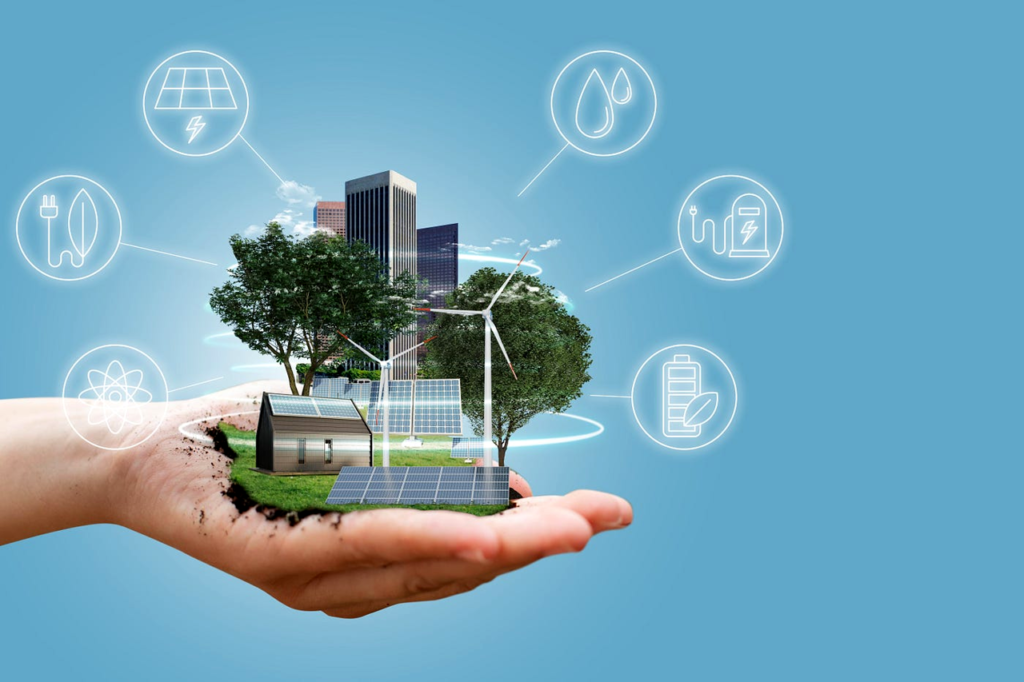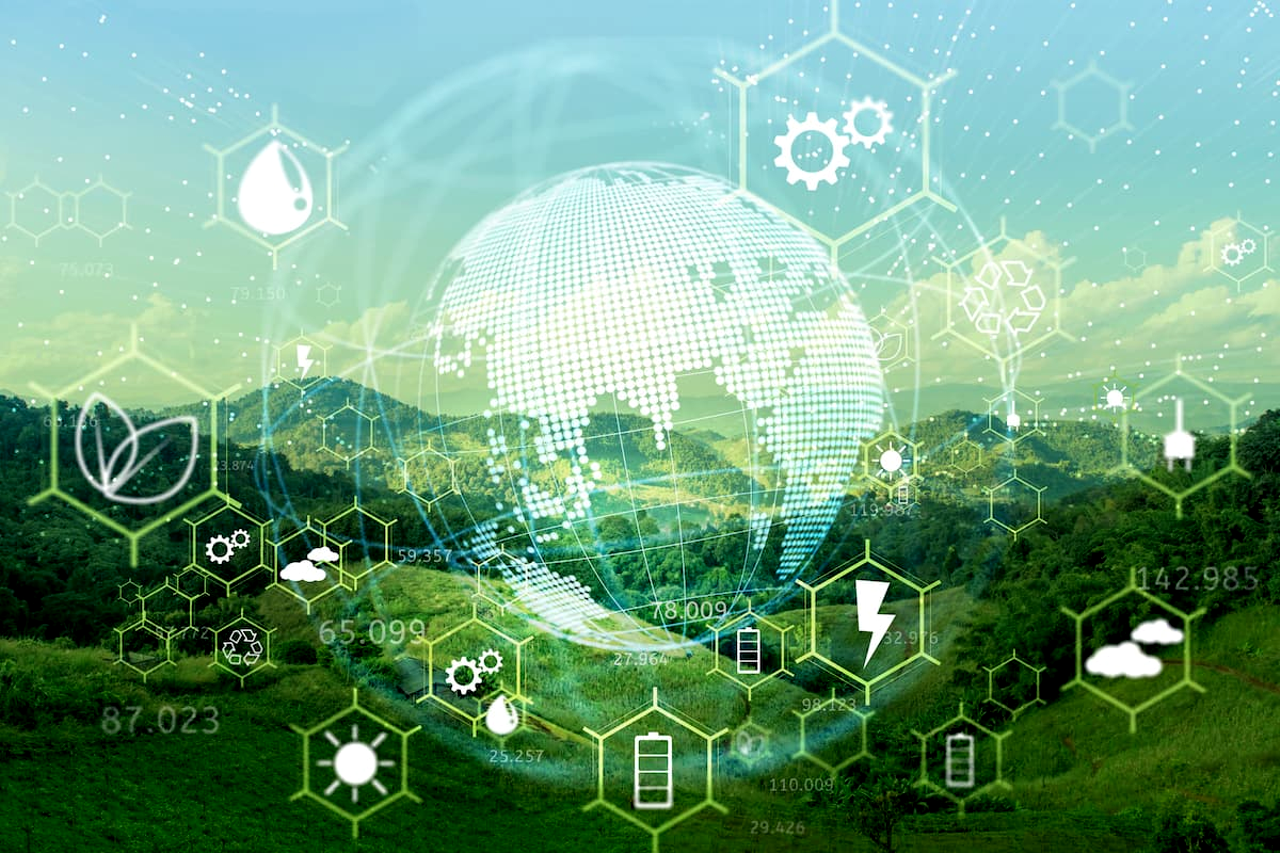In the face of a growing environmental crisis, the need for sustainable solutions has never been more urgent. Environmental technology, or “Envirotech”, is emerging as a key player in mitigating the impacts of human activities on the planet. This article explores various facets of environmental tech and its role in shaping a sustainable future.
Read More: Cultivating Innovation: The Intersection of Tech and Culture
Contents
- 1 Environmental Tech: Solutions for a Sustainable Future
- 2 The Current Environmental Crisis
- 3 Role of Technology in Environmental Solutions
- 4 Renewable Energy Technologies
- 5 Waste Management Technologies
- 6 Sustainable Transportation
- 7 Smart Agriculture Practices
- 8 Biodiversity Conservation Technologies
- 9 Urban Planning and Green Infrastructure
- 10 Challenges and Opportunities in Environmental Tech
- 11 Impact on the Global Economy
- 12 Government Initiatives and Policies
- 13 Ethical Considerations in Environmental Tech
- 14 Future Trends in Environmental Tech
- 15 FAQs
- 16 The Final Words
Environmental Tech: Solutions for a Sustainable Future

Definition of Environmental Tech
Environmental technology refers to the application of scientific and engineering solutions to address environmental challenges. It encompasses a wide range of innovations aimed at promoting sustainability and reducing the ecological footprint.
Importance of Sustainability
As the world grapples with issues like climate change, pollution, and resource depletion, the importance of sustainable practices and technologies becomes evident. Environmental tech offers a pathway to balance human development with ecological preservation.
The Current Environmental Crisis
Highlighting Environmental Issues
Before delving into solutions, it’s crucial to acknowledge the severity of the environmental crisis. Rising temperatures, deforestation, and pollution are just a few of the challenges we face.
Urgency for Sustainable Solutions
The clock is ticking, and urgent action is needed to reverse environmental damage. Sustainable solutions provided by environmental tech offer a ray of hope in this critical scenario.
Role of Technology in Environmental Solutions
Overview of Environmental Technologies
Environmental technologies encompass a broad spectrum, ranging from renewable energy sources to advanced waste management systems. Each plays a crucial role in creating a sustainable future.
Examples of Current Tech Initiatives
Innovative projects worldwide showcase the potential of technology in addressing environmental concerns. From clean energy initiatives to smart agriculture, these endeavors pave the way for a greener tomorrow.
Renewable Energy Technologies
Solar Power
Solar energy stands out as a beacon of hope in the quest for renewable resources. Harnessing the power of the sun, solar panels generate clean and sustainable electricity.
Wind Energy
Wind turbines, another form of renewable energy, convert wind power into electrical energy. As technology advances, wind farms become increasingly efficient and cost-effective.
Hydroelectric Power
Hydropower utilizes the energy of flowing water to generate electricity. Dams and turbines harness the power of rivers, providing a consistent and renewable energy source.
Waste Management Technologies
Recycling Innovations
In the battle against waste, innovative recycling technologies are making strides. From turning plastic waste into building materials to advanced sorting systems, these technologies minimize environmental impact.
Advanced Waste-to-Energy Systems
Waste-to-energy systems convert non-recyclable waste into energy, reducing landfill reliance and contributing to a circular economy.
Sustainable Transportation
Electric Vehicles
Electric vehicles (EVs) are revolutionizing the automotive industry. With zero emissions and improving battery technology, EVs contribute significantly to reducing the carbon footprint.
Green Public Transportation
In urban planning, emphasis on green public transportation, such as electric buses and trains, plays a crucial role in reducing pollution and congestion.
Smart Agriculture Practices

Precision Farming
Technology in agriculture goes beyond traditional practices. Precision farming, using data and technology to optimize crop yields, ensures sustainable and efficient food production.
IoT in Agriculture
The Internet of Things (IoT) is transforming agriculture by providing real-time data on soil health, crop conditions, and weather patterns, enabling farmers to make informed decisions.
Biodiversity Conservation Technologies
Monitoring and Protection Tools
Environmental tech aids in monitoring and protecting biodiversity. From satellite tracking of endangered species to AI-driven analysis, these tools help in conservation efforts.
Conservation Drones
Drones equipped with advanced sensors contribute to biodiversity conservation by monitoring ecosystems, detecting illegal activities, and supporting wildlife research.
Urban Planning and Green Infrastructure
Green Building Technologies
In urban areas, green building technologies focus on energy efficiency, renewable materials, and sustainable design to minimize environmental impact.
Urban Green Spaces
The incorporation of green spaces in urban planning contributes to biodiversity, air quality improvement, and the overall well-being of city dwellers.
Challenges and Opportunities in Environmental Tech
Technological Barriers
While environmental tech shows promise, there are challenges, including technological barriers that must be overcome to achieve widespread adoption.
Business Opportunities in Green Tech
The pursuit of sustainability presents lucrative business opportunities, attracting entrepreneurs and investors to the burgeoning green tech sector.
Impact on the Global Economy
Economic Benefits of Environmental Tech
Investing in environmental tech not only benefits the planet but also stimulates economic growth through job creation and the development of new industries.
Growth of Green Industries
As environmental consciousness rises, industries focusing on sustainability witness significant growth, indicating a shift towards a greener and more sustainable global economy.
Government Initiatives and Policies
Importance of Regulatory Support
Government support and policies are crucial in fostering the development and adoption of environmental technologies on a large scale.
Global Environmental Agreements
International collaborations and agreements further strengthen the collective effort to address global environmental challenges.
Ethical Considerations in Environmental Tech
Balancing Progress and Nature
As we embrace environmental tech, it’s essential to strike a balance between technological progress and preserving the natural world.
Responsible Tech Development
Ethical considerations must guide the development and deployment of environmental technologies to avoid unintended consequences.
Future Trends in Environmental Tech

Emerging Technologies
From bio-inspired innovations to advancements in energy storage, the future holds exciting possibilities for environmental tech.
Integration of AI in Sustainability
Artificial Intelligence (AI) is increasingly being integrated into environmental solutions, offering data-driven insights and predictive analytics.
Read More: Powering the Future: Innovations in Clean Energy
FAQs
- How does environmental tech contribute to biodiversity conservation? Environmental tech provides monitoring tools like drones and sensors to track and protect endangered species and ecosystems.
- What role does the government play in promoting environmental tech? Governments play a crucial role by providing regulatory support, funding, and participating in global environmental agreements.
- Are there ethical considerations in the development of environmental technologies? Yes, it’s vital to balance technological progress with ethical considerations to ensure responsible tech development.
- How can individuals contribute to the growth of green industries? Individuals can support green industries by choosing sustainable products, reducing waste, and advocating for eco-friendly practices.
- What are the emerging trends in environmental tech? Emerging trends include bio-inspired innovations, advancements in energy storage, and the integration of AI for sustainability.
The Final Words
Environmental tech is a beacon of hope in our pursuit of a sustainable future. The combination of renewable energy, waste management, smart agriculture, and conservation technologies paints a promising picture. As individuals, businesses, and governments collaborate, the vision of a greener planet becomes attainable.




